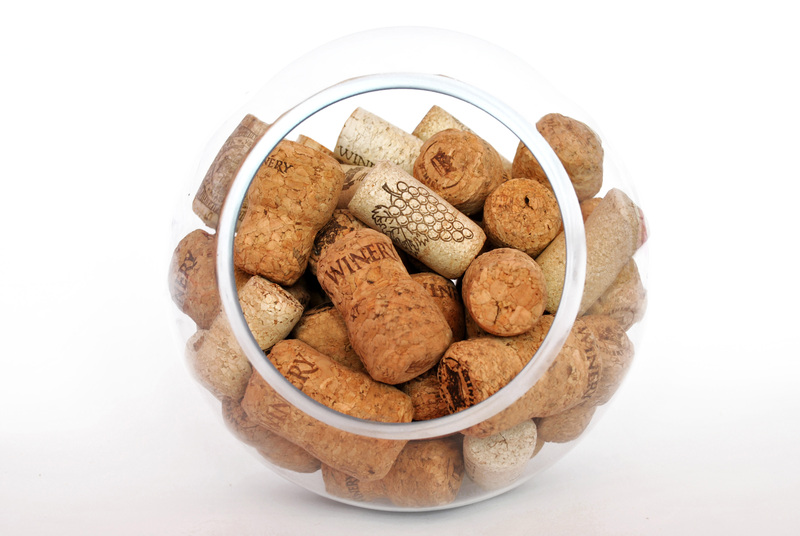Transform Your Recycling Habits With These Top Suggestions
Recycling is more than just a buzzword. It's a vital process that helps conserve our planet's resources, reduce pollution, and create a more sustainable future. But are you doing it as effectively as you could? In this comprehensive article, you'll discover how to transform your recycling habits with actionable, impactful, and easy-to-follow recommendations. Whether you're a seasoned eco-warrior or just starting your journey, these top suggestions will make your recycling routine more effective than ever before!

Why Improving Your Recycling Habits Matters
In recent years, recycling has become an essential part of daily living across the globe. However, many people are unaware that improper recycling can contaminate entire batches of recyclables, sending them straight to the landfill. By refining your recycling process, you can significantly reduce pollution, save energy, and help preserve the environment for future generations.
Key Strategies to Transform Your Recycling Habits
Ready to take your recycling efforts to the next level? Here are some crucial suggestions that can help you effectively transform your recycling habits and make a real difference.
1. Understand What Can and Cannot Be Recycled
One of the most common reasons recycling efforts fail is due to confusion about what is and isn't recyclable. Take the time to understand your local recycling guidelines, as rules can vary by region. Below are some general categories:
- Paper and Cardboard - Newspapers, magazines, office paper, and cardboard boxes (flatten them first!)
- Plastics - Bottles and containers usually marked with recycling codes 1 and 2
- Metals - Aluminum cans (like those for soda) and steel food cans
- Glass - Bottles and jars (make sure they're empty and clean)
- Not Recyclable: Food-soiled items, plastic bags, polystyrene foam, clothing, and electronics (unless there is a designated program)
TIP: When in doubt, check your city's official recycling page or consult the label of the item in question.
2. Clean and Dry Items Before Recycling
Did you know that dirty containers such as pizza boxes or yogurt pots can ruin an entire load of recyclables? It's critical to rinse and dry your recycling to keep it free from food residue and moisture. This habit preserves the recyclability of materials and prevents odor or pest issues.
- Rinse cans and bottles thoroughly
- Let containers air-dry before tossing them in the recycling bin
- Wipe out excess food from containers when possible
3. Avoid 'Wishcycling'
Wishcycling occurs when people put questionable items in the recycling bin, hoping they will be recycled. Unfortunately, this often leads to contamination and slows down the recycling process. To truly improve your recycling routine, only put items in the recycling bin if you are confident they are accepted in your local program.
4. Reduce, Reuse, and Then Recycle
While this article focuses on recycling, the best way to create positive environmental impact is to reduce and reuse even before considering recycling. Here's how:
- Reduce: Buy products with minimal or recyclable packaging and avoid single-use plastics
- Reuse: Repurpose glass jars, plastic containers, and other household items instead of discarding them
- Recycle wisely by following all guidelines
By prioritizing reduction and reuse, you'll produce less waste and make your recycling efforts more efficient.
5. Set Up an Efficient Home Recycling Station
To revolutionize your recycling behavior, organize your home recycling area for convenience and efficiency:
- Designate bins for different recyclable materials (paper, plastic, metal, glass)
- Label each bin clearly to avoid confusion among household members
- Place your recycling station in an accessible spot (like the kitchen or garage)
- Educate family members about the system
6. Compost Your Food Waste
Not all waste belongs in the garbage or recycling. Organic waste like fruit and vegetable scraps can be composted, transforming it into nutrient-rich soil for your garden. Composting not only reduces methane emissions from landfills, but also enhances soil health in your garden.
- Set up a simple compost bin or heap outside
- Add food scraps, coffee grounds, eggshells, and yard trimmings
- Avoid composting meat, dairy, or oily foods
7. Participate in Community Recycling Initiatives
Many communities offer special programs for recycling items not accepted by curbside pickup, such as:
- Electronics and batteries
- Household hazardous waste
- Clothing and textiles
- Plastic films and bags
Look for local e-waste collection days, hazardous waste drop-off events, or nonprofit organizations collecting old clothing. Take part in these initiatives to further enhance your recycling habits and engage with like-minded individuals in your community.
8. Buy Recycled Products
One great way to close the recycling loop is to purchase products made from recycled materials. This increases demand for recycled materials, ensures the continued viability of recycling facilities, and saves resources. Look for recycled paper, eco-friendly packaging, and upcycled household items whenever possible.
- Check product labels for recycling logos and post-consumer material content
- Choose brands with strong environmental commitments
9. Recycle On-the-Go
Recycling isn't just for home. Commit to recycling when you're out and about by:
- Looking for public recycling bins (in parks, malls, offices)
- Carrying a reusable bag, water bottle, or coffee cup
- Taking items home to recycle if you can't find a recycling bin
TIP: Keep a small bag in your car or backpack for recyclables, and empty it when you get home.
10. Educate and Motivate Others
You can further magnify your eco-friendly impact by sharing your knowledge and encouraging others to adopt better recycling practices. Social media, conversations, and community workshops are excellent ways to inspire friends, family, and neighbors to transform their recycling habits.
- Share recycling tips and resources online
- Host recycling challenges or events in your neighborhood
- Model good habits at work and in social settings
The more people you encourage, the bigger impact you'll all have together!
Common Recycling Mistakes to Avoid
Even with the best intentions, it's easy to make mistakes that can undermine your efforts. Here are some pitfalls to watch out for:
- Not emptying food and liquid from containers - Even small amounts can spoil batches of recycling
- Placing items in plastic bags - Most programs don't accept bagged recyclables due to processing issues
- Recycling items contaminated with grease or food residue - Like pizza boxes or greasy takeout containers
- Not breaking down cardboard boxes - This saves space and improves efficiency
- Assuming all plastics are recyclable - Focus on types accepted by your local program
If in doubt, remember the mantra: "When in doubt, throw it out!" This prevents contamination of good recyclables.
Recycling Myths Debunked
There are many persistent myths that can confuse even the most environmentally conscious individuals. Let's clear up some of the most common misconceptions:
- Myth: "Everything marked with a triangle is recyclable."
Fact: The triangle symbol indicates the type of plastic, not whether it's recyclable in your area. Always check local guidelines. - Myth: "Recycled materials aren't as good as new."
Fact: Many recycled products are equal in quality and performance to their virgin counterparts, and often have a smaller environmental footprint. - Myth: "Recycling doesn't really matter."
Fact: Every effort helps reduce waste, conserve resources, and support the sustainability of recycling systems. - Myth: "It doesn't matter if recyclables are dirty."
Fact: Clean, dry recyclables are essential for processing and ensuring high-quality recovered materials.
Tech Tools to Enhance Your Recycling Game
Take advantage of technology to optimize your recycling strategies:
- Apps like iRecycle, RecycleCoach, or Earth911 to help identify recyclable items and locations
- Local government websites and hotlines that offer guidelines and collection schedules
- Bar-code scanning apps for instant recycling information on products
Staying informed is one of the easiest ways to keep your recycling habits on point!

The Long-Term Impact of Improved Recycling Habits
By implementing these top suggestions, you don't just make a difference in your household--you contribute to a global movement. Recycling efficiently conserves natural resources, reduces carbon emissions, saves landfill space, and moves us closer to a circular economy where waste is minimized and every material is used to its fullest potential.
Imagine this:
If every household makes a conscious effort to transform their recycling habits, the combined environmental impact can be staggering. It's not just about tossing items into the right bin; it's about shifting our mindset and embracing our responsibility to the planet.
Start Transforming Your Recycling Routine Today!
You now have the knowledge and top recommendations needed to truly transform your recycling habits and make a lasting, positive difference. Remember, sustainability starts with small steps--so don't be discouraged if the process feels overwhelming at first. Every recycled can, every clean container, and every composted banana peel adds up.
- Educate yourself about local recycling rules
- Keep recyclable items clean and dry
- Reduce, reuse, then recycle
- Set up a recycling station at home
- Compost organics when possible
- Engage with community recycling initiatives
- Support products made from recycled materials
- Recycle wherever you go
- Motivate others to join your mission
Together, we can build a cleaner, greener, and more sustainable future. Make today the day you transform your recycling habits for good--your home, your community, and the planet will thank you for it!